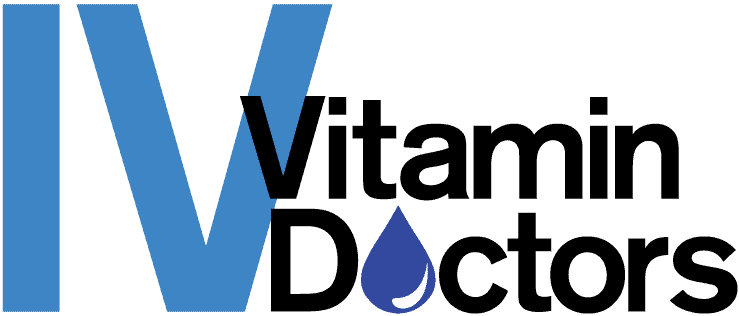People are searching for ways to stay young and healthy. Countless supplements claim to offer an elusive “fountain of youth,” but few compare to nicotinamide adenine dinucleotide or NAD. NAD has been generating a lot of excitement, as it may be the key to extending life.
Before taking steps to boost declining NAD levels to reverse cellular aging, it’s crucial to address some critical questions. These include determining safe dosages, examining long-term impacts, and assessing the potential benefits of such a move.
We need to consider whether ramping up internal NAD levels is advisable without a scientific safety consensus and whether any downstream penalties are associated with it. Therefore, carefully weighing the side effects and benefits before taking action is essential.
Given a murky modern understanding of complex biochemistry cascades, we spotlight potential red flags, including vision changes and DNA interaction risks that demand caution tempering exuberance.
Our guide explores the essential details of NAD and its impact on optimal energy and aging. We take an unbiased and critical approach to differentiate scientific facts from hype, presenting a balanced perspective on safe dosage levels.
Join us as we delve into this emerging health frontier and gain a better understanding of NAD.
What is Nicotinamide Adenine Dinucleotide (NAD+)?
Nicotinamide adenine dinucleotide (NAD+) is a type of coenzyme found in all living cells and is essential for various biological processes. It exists in NAD+ (oxidized form) and NADH (reduced form) and is involved in redox reactions, DNA repair, gene expression, calcium signaling, and immunological functions.
NAD+ can be synthesized from different precursors, such as nicotinamide mononucleotide (NMN) and nicotinamide riboside (NR), and its levels can decline with age. NAD+ has been studied for its potential therapeutic effects on age-related degenerative diseases.
However, the long-term safety of NAD+ boosting strategies is still uncertain, and there are concerns about potential adverse effects, especially with high-dose nicotinamide. NAD+ is a subject of ongoing research due to its potential implications for health and aging.
Is Nicotinamide Adenine Dinucleotide Safe?
It is available as a dietary supplement and has been studied for its potential effects on various health conditions, such as chronic fatigue syndrome, high blood pressure, high cholesterol level, athletic performance, depression, and Parkinson’s disease.
However, the safety of NAD+ supplements is not entirely clear, and there are some concerns and precautions to consider:
- Safety for liver and kidneys: People with liver or kidney problems should be cautious when using NAD+ supplements due to possible side effects on these organs.
- Safety for cancer patients: There is not enough evidence to know if NAD+ supplements are safe for people with cancer or inflammatory disorders like rheumatoid arthritis.
- Short-term safety: When taken by mouth, NADH (a form of NAD+) is possibly safe for most people for up to 12 weeks and is usually well-tolerated.
- Possible adverse effects: High-dose nicotinamide has been associated with headaches, dizziness, and other side effects. However, the safety of long-term use of NAD+ supplements is not well-established.
- Regulatory status: NR, a nicotinamide adenine dinucleotide precursor, has been given the “Generally Recognized as Safe” status by the US Food and Drug Administration (FDA). However, NMN and NR are relatively newly discovered forms of NAD+ precursors, and few studies have shown their toxicity and side effects.
Are NAD+ Injections Safe?
While NAD+ injections show promise for potential health benefits, their long-term safety is not well-established, and there are some possible side effects and risks associated with the treatment.
Consult with a specialized healthcare professional before considering NAD+ injections and receive the treatment in a medical setting by approved medical professionals with experience in intravenous therapies. Check our NAD+ IV heapy before reviewing the NAD+ injection’s safety.
- Injection-related side effects: These side effects may include tenderness, slight redness, and/or swelling at the injection site, minor risk of infection, and bruising.
- Nausea, brain fog, and cramping: These side effects have been reported in some cases. However, they are usually temporary and can be managed by slowing the infusion or administering medications to alleviate the symptoms.
- Allergic reactions: Patients may experience rare allergic reactions to NAD+ injections, so monitoring the patient’s vital signs and responses during and after the treatment is essential.
- Potential interactions with other medications: NAD+ injections may interact with other medications, so it is crucial to inform your healthcare provider about all the medicines you are taking before starting NAD+ injections
Is NAD+ Infusion Safe?
NAD+ infusion therapy is considered a safe treatment option. NAD+ is a natural substance used in the body at the cellular level and is readily incorporated.
During the infusion, NAD+ can cause side effects such as nausea, brain fog, cramping, and muscle fatigue, but these can often be relieved by slowing the IV drip.
No adverse events were observed during a 6-hour NAD+ infusion in a pilot study, and the therapy is likely to be safe for human use based on the human trials conducted to date.
However, individuals with liver or kidney problems should be cautious when using NAD+ supplements due to possible side effects on these organs, and there is not enough evidence to know if NAD+ supplements are safe for people with cancer or inflammatory disorders like rheumatoid arthritis.
Consult with a specialized healthcare professional before undergoing NAD+ infusion therapy, especially if you have any underlying health conditions.
Nicotinamide Adenine Dinucleotide (NAD+) Side Effects
Nicotinamide adenine dinucleotide (NAD+) is generally considered safe, but it may cause some side effects, especially when taken in high doses. Some of the potential side effects of NAD+ include:
- Gastrointestinal issues: Nausea, vomiting, bloating, and diarrhea have been reported in some cases.
- Flushing: This side effect can cause the skin to turn red and feel warm all at once, resulting from the rapid release of prostaglandins, which dilate blood vessels.
- Headaches: These are usually mild and temporary, disappearing shortly after the infusion. Proper hydration before and during the treatment helps reduce the likelihood of experiencing headaches.
- Dizziness and fainting: People who get NAD+ therapy may feel temporarily dizzy or faint during or after the treatment.
- Injection-related side effects: These may include redness, tenderness, swelling at the injection site, bruising, infection, and phlebitis.
Recommended Dosage for NAD Injections
The recommended dosage for NAD+ injections can vary based on the source. Here are some typical dosage recommendations:
AgelessRX
The recommended dose for general health is 0.1ml (20mg NAD+) and gradually increases to 0.5ml (100mg NAD+) 1-3 times per week. The injection is ideally administered into a fatty layer of skin, such as the back of the arm, abdomen, or flank/lumbar region. Each injection contains 20mg NAD+ in a 0.1 ml dose.
Invigor Medical
The typical dosage in clinical studies ranges from 100 to 300 mg daily, given as one or more infusions over several days. Subcutaneous NAD+ injections typically range between 20 mg and 100 mg of NAD+.
Empower Pharmacy
Case studies of NAD+ to treat drug addiction used a dosage of 500–1000 mg per day for 4 days, then two injections every week for a month, and then one injection every two months as a maintenance dose.
Rejuvenate MKE
NAD+ injections are available in 100 and 250 mg doses, administered subcutaneously or diluted into normal saline and slowly given into a vein. The 250 mg NAD+ infusion is given via IV over 2-4 hours.
Does NAD Cause Cancer?
NAD+ has a complex relationship with cancer. On the one hand, cancer cells are highly metabolically active and require a lot of energy to grow and divide, leading to an increased demand for NAD+. Some studies have shown that high levels of NAD+ may bestow therapy resistance to cancers and make tumors more potent.
However, it is also suggested that NAD+ supplementation may fuel the immune system in ways that help prevent cancer.
The idea that elevating NAD+ levels could fuel cancer growth remains a hypothesis, and more research is needed to understand the potential impact of NAD+ on cancer.
Final Words
The safety of Nicotinamide Adenine Dinucleotide (NAD+) and its precursors, such as nicotinamide mononucleotide (NMN) and nicotinamide riboside (NR), is a subject of ongoing research.
While NAD+ and its precursors have shown potential health benefits and are likely safe for human use, there are still uncertainties and challenges regarding their long-term safety and potential side effects, especially with high-dose supplementation. Some studies suggest that NMN and NR may be better tolerated than other NAD+ substrates and oral doses of NR have been reported to be well-tolerated.
However, the safety data for NAD+ boosting strategies have not been systematically collected, and more research is needed to understand their safety profile fully. Therefore, individuals should approach NAD+ supplementation with caution, especially those with underlying health conditions, and consult with a healthcare provider before initiating NAD+ supplementation or infusion therapy.
Further clinical trials are warranted to establish the safety and efficacy of NAD+ supplementation for various health indications.


